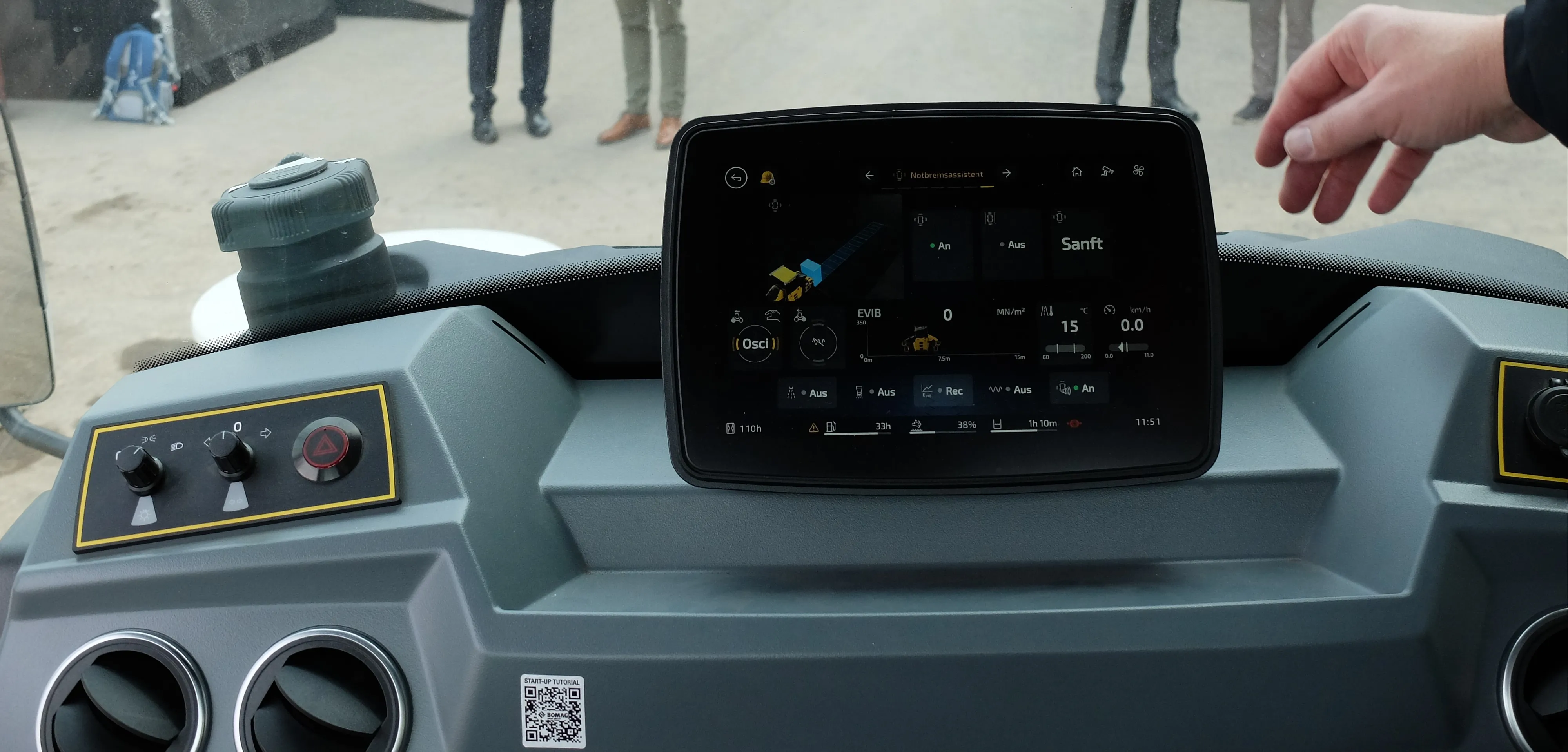
With the mobile KMA 220 mobile cold recycling mixing plant from
Finally, it is extremely economical, according to Wirtgen. This became clear from a job at Cologne/Bonn airport at the end of 2017. The plant, located immediately next to the job site, produced around 11,000 tonnes of materials for a hydraulically bound base layer, using materials reclaimed locally, water and cement in the mix-in-plant process.
During that autumn, parts of the flight operations areas at Cologne/Bonn Airport were renovated. Parts of the drainage system, including the unbound superstructure and parts of the substructure, were also rehabilitated. The mobile cold recycling mixing plant from Wirtgen prepared the material mix.
Alexander Weber of the contractor SAT Straßensanierung coordinated the deployment of the mobile KMA 220. “We use the cold mixing plant in projects across the country. In the past three months, for instance, it has been in Munich, before going on to the Rhineland and then to two locations in the Hunsrück region. This works outstandingly well, because the plant is very easy to transport and the setup times are very short.”
A new location usually also means a different formula, different mineral aggregates and different binders. Weber said that the KMA 220 can produce a wide range of mixes from new aggregates, milled material or other reclaimed road surfacing materials in an environmentally friendly process. Cement, bitumen emulsion or foamed bitumen can be added in the plant as a binder.
One of the key factors in the cost-effectiveness of the plant is its simple, time-saving transportability. This was taken into account right from the design stage, when the transport dimensions were kept within the international guidelines for road traffic. Erection and dismantling are also straightforward, because the work can be done without any special tools and no foundations are required. Instead, a combination of fixed and hydraulically extending supports provides stability.
Volkmar Gogol, the SAT operative responsible for setting up the KMA 220, has been working with Wirtgen cold mixing plants since 1990. “I worked with the KMA 150 first, then with its successor the KMA 200 and now the KMA 220. Over the years, the plants have been continually optimised and made more efficient. Today, I can mix between 150-220 tonnes per hour with the KMA 220, depending on the material used and the formula. That amounts to as much as 2,000 tonnes in one day,” said Gogol.
In six days, the mobile KMA 220 at Cologne/Bonn airport turned around 11,000 tonnes of recycled material into hydraulically bound base required for a taxiway surface area of about 60m x 600m. The material consisted of RAP – recycled asphalt pavement - from a variety of projects in the region as well as parts of the hydraulically bound base from a construction site neighbouring the airport.
To achieve the required strengths, 4.4% by volume of 32.5 R Portland cement and 1.2% by volume of water was added to the construction material. Six trucks transported the material from the KMA 220 straight to the installation site about 400m away, before shuttling back again.
Measuring and control technology in the KMA 220 ensures that the formula is followed. The aggregate is weighed on belt scales while on the take-off conveyor and fed continuously to the mixer. The quantities of water and binder specified in the formula are determined by microprocessor control, based on the weight of the aggregate, then dosed precisely and added by means of the pump and flow meter. They are added directly at the twin-shaft compulsory mixer, where mixing blades made of wear-resistant carbide metal mix all components thoroughly.
Even after more than 3,500 hours of operation, the KMA 220 was still mixing the construction materials in accordance with the mix design test specifications.
Thanks to the large tank capacities, preparation of the hydraulically bound base at the airport proceeded smoothly, noted David Rose, site manager of general contractor Heinz Schnorpfeil Bau. “The plant keeps to the formula reliably and produces the desired quantities in the allotted time.”
The KMA 220 continuously turned the recycled material into hydraulically bound base material that was then distributed over the surface of the site by a grader. Compaction was handled by a
Immediately after completion of the hydraulically bound base, a
By then Gogol was already getting the KMA 220 ready for its journey to the next job site, around 150km away in the Hunsrück. There, around 20,000 tonnes of tar-polluted reclaimed material had to be processed in the following two weeks allowing it to be recycled economically for use in the rehabilitation of a country road.









